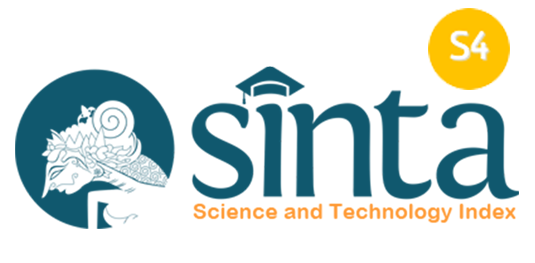ISLAMIC EDUCATION AND THE EMANCIPATION OF DISABLED INDIVIDUALS
 pdf Download: 31
pdf Download: 31
DOI:
https://doi.org/10.32665/alulya.v7i1.1510Keywords:
Emancipation, disability, OKU, IslamAbstract
In this study, emancipation refers to the release of the paradigm or the provision of equal (fair) rights to the disabled individual (Orang Kurang Upaya) community based on an appreciation of the reality of disability. In contemporary social studies, the "emancipation" paradigm is essential, particularly when discussing social minority societies such as the handicapped. This is due to the fact that the disabled have been excluded from the flow of national progress in terms of education, employment, health, transportation, politics, etc. for a very long period. This study's primary purpose is to evaluate the idea of disability according to the Quran, as well as the right strategy to addressing the concerns and challenges of religiously impaired individuals. This is a qualitative research that collects data and information through document analysis. The results of a search for https://sigir.uitm.edu.my/svsi/sumberutama.php a number of the Quranic verses utilize phrases that are strongly associated with the group of handicapped people, such as deaf, stupid, blind, lame, and feeble. Some of these expressions plainly pertain to the law of rukhsah (leniency) for jihad and enforcing the demands of Sharia, while others are employed as parables to teach the nature of faith and unbelief as well as the repercussions of refusing to adopt Islam.
Downloads
References
Adnan Mohamed Yusoff, Norakyairee Mohd Raus, Mohd Khairul Nizam Zainan Nazri, Mohd Nur Adzam Rasdi, Rabiatul Adawiyah Mohamad dan Mohd Fauzi Mohd Amin. (2014). Wasatiyyah Nabawi dalam Menyantuni Golongan Orang Kurang Upaya. Seminar Warisan Nabawi (SWAN 2014) Peringkat Antarabangsa. Anjuran Wasatiyyah Institute Malaysia & Faculty of Quran Sunnah Studies USIM, Nilai
Ahmad Sanusi Azmi. (2021). 40 Hadis tentang OKU. Ulum Hadith Research Centre
al-Zamakhsyari, Mahmud ibn Umar. 1988. al-Kasyaf an Haqa’iq al-Tanzil wa ‘Uyun al-Aqawil fi wujuh al-Takwin. Dar al-Fikr
Barnes, C. (1997). Disability and the myth of the independent researcher, dalam ‘Disability Studies: Past present and future’, Barton, L., & Oliver, M., (eds.), pp.239-243. Leeds: The Disability Press
Campbell, J. & Gillespie-Sells, K. (1991). Disability Equality Training: Trainers Guide. London, Central Council for Education & Training in Social Work (CCETSW)
Convention on the Rights of Persons with Disabilities and Optional Protocol. Diakses dari https://www.un.org/development/desa/disabilities/convention-on-the-rights-of-persons-with-disabilities.html
Desy Suryani dan Norakyairee Mohd Raus. (2017). Khidmat Quran dan Sunnah bagi OKU: Pengalaman USIM. Journal of Quran Sunnah Education and Special Needs. 1. 10.33102/jqss.vol1no1.4.
Disabled individual Act 2008. National Printing Malaysia Berhad. Kuala Lumpur
Finkelstein, V. (1998). The biodynamics of disablement? Kertas kerja yang dibentangkan di Disability and Rehabilitation Systems Research, Harare, Zimbabwe - 29 Jun1998
French, S. (1992). Simulation exercises in disability awareness training: A critique. Disability, Handicap & Society, 7(3), 257-266
Hannah Aqilah Amran, Rosadah Abd Majid dan Manisah Mohd. Ali. (2019). Cabaran Guru Pendidikan Khas Pada Abad Ke-21. International Journal of Education, Psychology and Counseling Volume: 4 Issues: 26 [March, 2019] pp.113-122]
Harris, A. & Enfield, S. (2003). Disability, Equality and Human Rights: A Training Manual for Development and Humanitarian Organisations. Oxford, Oxfam
Ismail bin Umar bin Kathir. (2000). Tafsir al-Quran al-Azim. Lubnan: Dar Ihya’ Turath Arabi.
Kuno, K. (2009). Disability equality training (DET): Potentials and challenges in practice in developing countries. Asia Pacific Disability Rehabilitation Journal, 20(1), 4-51
Kuno, K. and D. Seddon (2003). Kaihatsu niokeru Syogaisyabunya no Twin-track Appraoch no Zitsugen ni Mukete (A Study on Twin-track Approach in Disability and Development). Tokyo, Japan International Cooperation Agency
Lang, R. & D. Seddon (1999). Disability and Development Studies: Towards an Integrated Approach. Development Studies Association (DSA) Annual Conference, 12-14 September, at University of Bath
Liz Carr, Paul Darke, & Kenji Kuno (2012). Disability Equality Training: Action for Change, Kuala Lumpur, MPH Publishing
Muhammad Musa Syarif. (2013). al-Taqarub Wa al-Ta’ayush Ma’a Ghair al-Muslimin. Arab Saudi: Dar Andalus al-Hira’
Muhamad Nadhir Abdul Nasir. (2019). Kritikan Metodologi Penyelidikan Melibatkan Orang Kurang Upaya Penglihatan Menurut Perspektif EMIK. Tesis Sarjana. Universiti Malaya
Noor Aziera Mohamad Rohana, Mohd Faizal P. Rameli, Rawi Nordin dan Siti Nurul Izza Hashim. Kepelbagaian dan Kesepaduan Etnik di Malaysia Menurut Islam. Jurnal Sains Insani. USIM Press
Norafifah, A. H. (2014). Prinsip Islam dan Nilai-Nilai Kemanusiaan dalam Mohd Faizal P.Rameli (ed.). Islam dan Hubungan Etnik: Sorotan Sejarah dan Isu Kontemporari di Malaysia. Melaka: Academy Of Contemporary Islamic Studies, UiTM
Oliver, M., & Sapey, B. (1983). Social work with disabled individuals. Macmillan International Higher Education
Oliver, M. (1990). Politics of disablement. Macmillan International Higher Education
Oliver, M. (1997). Emancipatory research: Realistic goal or impossible dream?, dalam Doing disability research, Barnes, C., & Mercer, G. (eds.), pp. 15-31. Leeds, The Disability Press.
Oliver, M. (2002). Emancipatory research: A vehicle for social transformation or policydevelopment , kertas kerja yang dibentangkan di 1st Annual Disability ResearchSeminar, Great Southern Hotel, 3 December 2002
Program Pemulihan Dalam Komuniti (PDK). Diakses dari http://www.jkm.gov.my/jkm/
Schriner, K. (2001). A disability studies perspective on employment issues and policies for disabled individuals. Dalam G. L. Albrecht, K D. Seelman, & M. Bury (Eds.), Handbook of disability studies (hlmn 642-662). Thousand Oaks, CA: Sage
Soder, M. (2009). Tensions, Perspectives and Themes in Disability Studies. Scandinavian Journal of Disability Research, 11 (2), 67-81
Shakespeare, T. (1996). Rules of Engagement: Doing Disability Research. Disability and Society. 11(1), 115-121
Shakespeare, T. (2006). Disability rights and wrongs. New York, NY: Routledge. Society for Disability Studies, (n.d.). SDS mission. Diakses dari http://www.disstudies.org/about/niission
Siti Rahmah Ahmad Razuan, Norakyairee Mohd Raus, Noornajihan Ja’far, Adnan Mohamed Yusoff, Mahyuddin Hashim dan Mohd Nur Adzam Rasdi. (2019). Pendidikan Al-Quran Bagi OKU: Pengalaman Pusat Penyelidikan Ibnu Ummi Maktum (UMMI). AL-ABQARI: Journal of Islamic Social Sciences and Humanities. Vol. 20 (2) Special Issue, 2019: 78-98
Valle, J.W. and Connor, D.J. (2011). Rethinking Disability: A Disability Studies Approach to Inclusive Practices. New York: McGraw‐Hill
Walzer, M. (1987). A disability studies approach to inclusive practices. New York, NY: McGraw HUl.
Downloads
Published
How to Cite
Issue
Section
License
Copyright (c) 2022 Al Ulya : Jurnal Pendidikan Islam

This work is licensed under a Creative Commons Attribution-ShareAlike 4.0 International License.
 pdf Download: 31
pdf Download: 31













